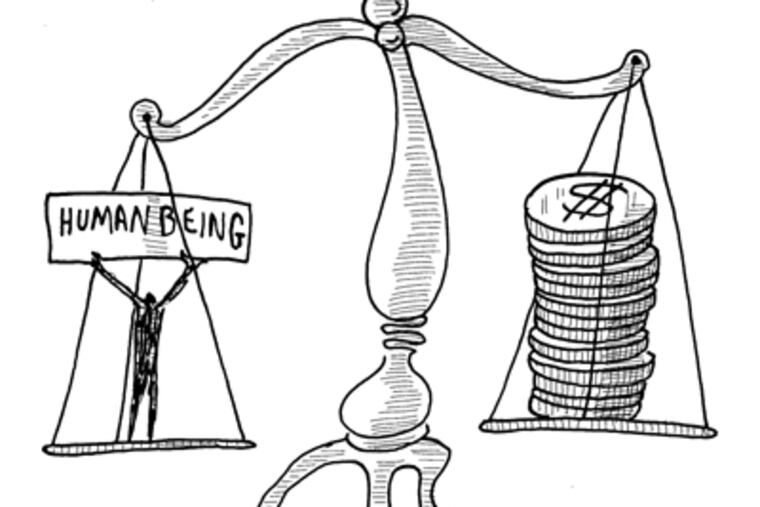Inquirer Editorial: Worst defense money can buy
For anyone facing a murder charge in Philadelphia, having a private attorney appointed by the court to represent you may be the surest way to land on death row - or in jail for life.

For anyone facing a murder charge in Philadelphia, having a private attorney appointed by the court to represent you may be the surest way to land on death row - or in jail for life.
Confronted with that finding from a study by the nationally renowned RAND Corp., local court officials should be under even greater pressure to speed steps toward improving the quality of the legal aid provided to indigent defendants.
RAND reported last week that guilty verdicts and longer sentences are more common for defendants with court-appointed private lawyers, as compared to those whose cases were handled by full-time public defenders.
That's further evidence - along with an earlier Inquirer review - that the city has been shortchanging the poor in capital cases by paying court-appointed lawyers the lowest fees among comparable cities.
It's no surprise that the meager pay leads to some defense lawyers' showing up ill-prepared for trial. Too many subsequently botch the second phase in first-degree murder cases, which is when convicted defendants try to avoid a death sentence.
Indeed, over the last three decades, nearly one out of every three capital convictions in the city has been reversed - or a new hearing ordered - due to inadequate representation. The status quo, clearly, is unacceptable. As the RAND study authors said, it calls into question "the fundamental fairness of the criminal justice system and whether it provides equal justice under the law."
City and state court officials, after years of denial, recently pledged to work out a better compensation system for court-appointed counsel. That's hopeful.
But while boosting the fees for private counsel makes sense, the RAND study makes an even more compelling case for beefing up the city's public-defender ranks. After all, as RAND discovered, it's those attorneys who have reduced their clients' murder conviction rate by 19 percent, and bettered the odds against a life sentence by nearly two-thirds.
No doubt, adding full-time public defenders to the payroll would cost a bundle - even more so, since Pennsylvania is the only state that saddles counties, including Philadelphia, with all these costs. Yet, the underfunding of court-appointed counsel has had a pay-me-now-or-later impact, since it burdens both city and state taxpayers with higher costs for prisons and endless legal appeals over the death penalty.
So, the smartest course would be to add resources to hire more public defenders and substantially improve attorney fees to recruit more qualified lawyers to serve as court-appointed counsel.